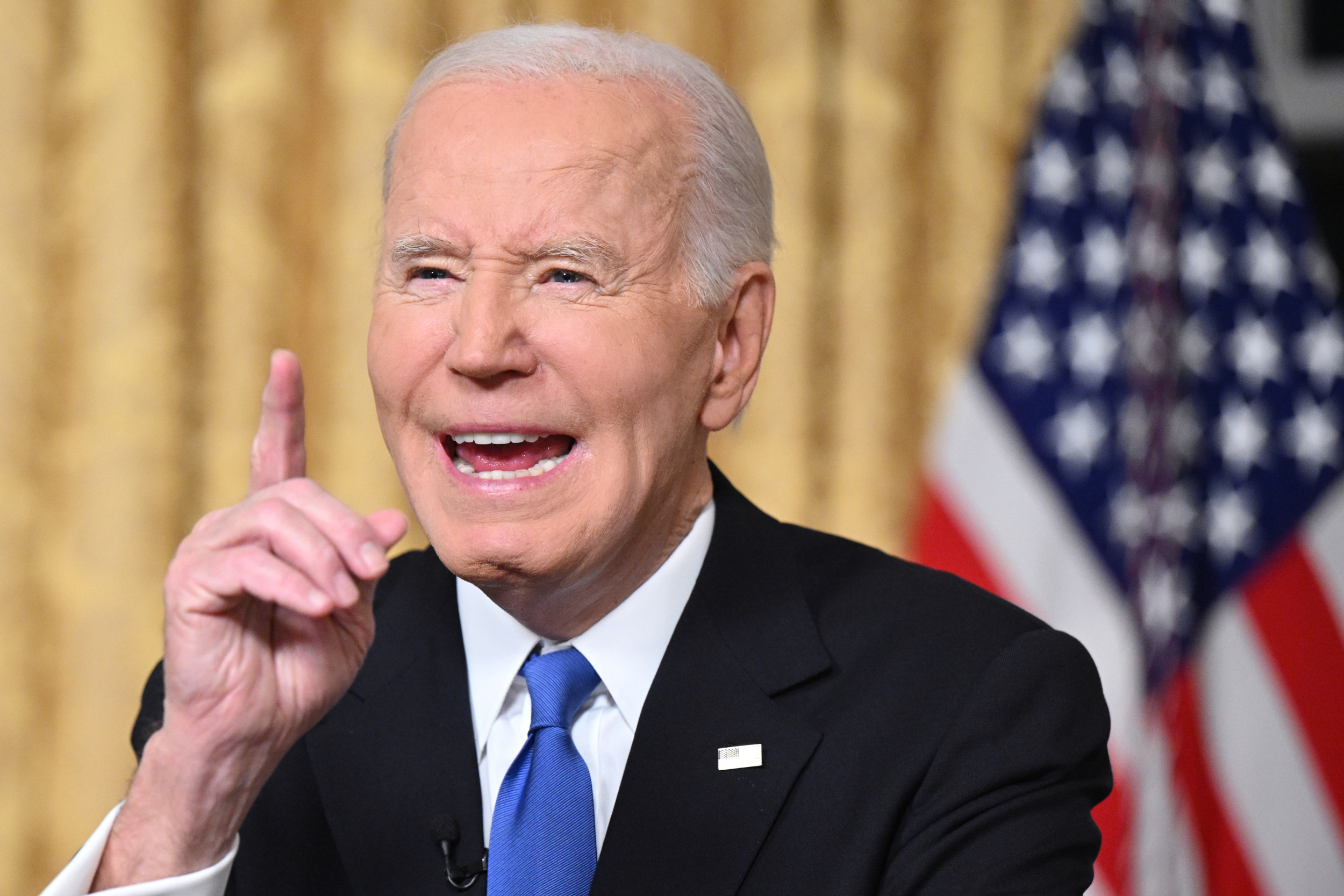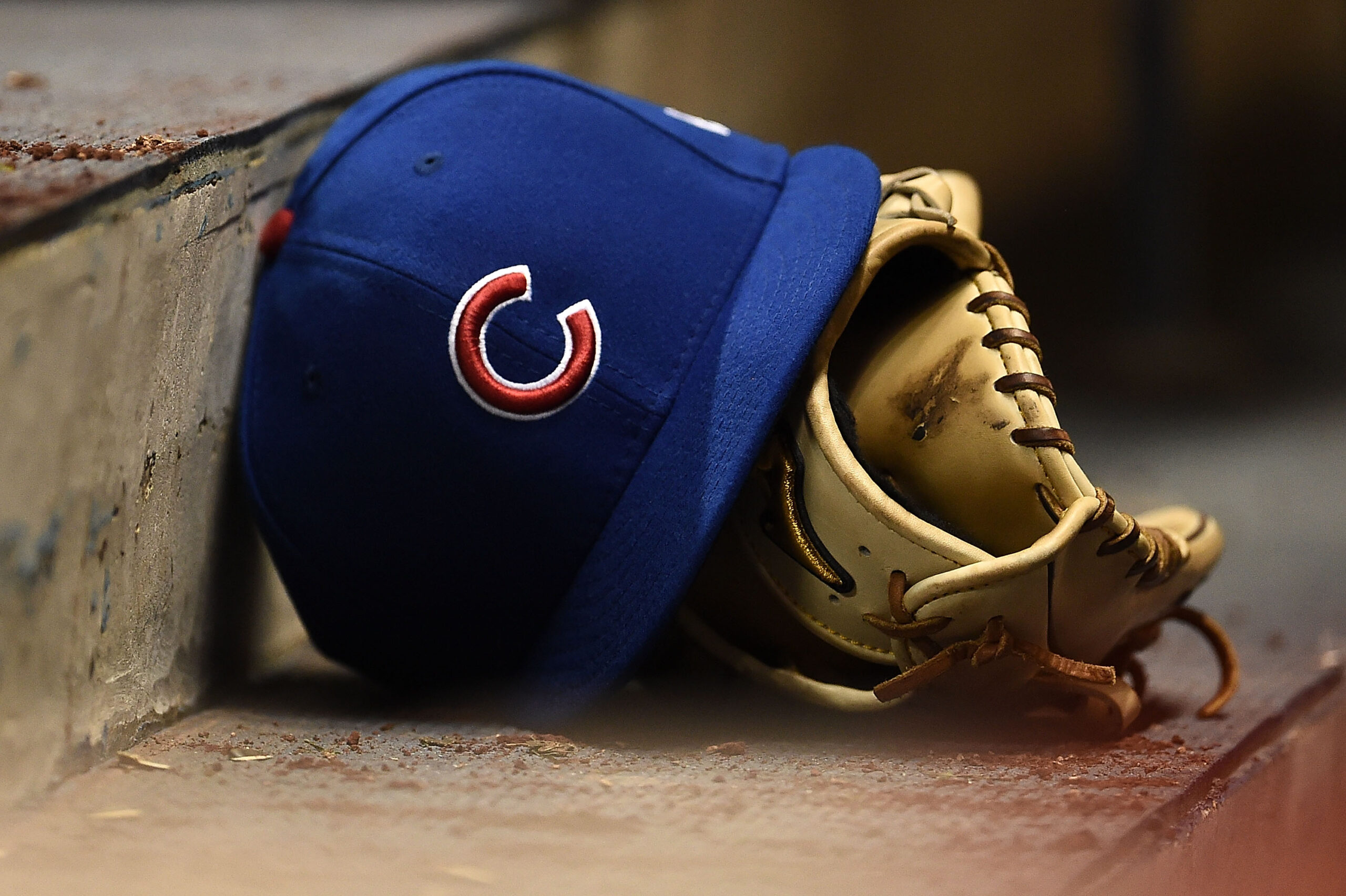
President Joe Biden‘s prostate cancer diagnosis this week has led to repeated questions about the state of his health while he was president.
Biden, 82, was diagnosed with an “aggressive form” of prostate cancer with metastasis to the bone, just days after those close to the ex-president revealed that he was recently evaluated for a “small nodule” discovered on his prostate. Throughout his presidency, critics and the media had questioned Biden’s fitness to run the office, pointing to frequent gaffes and what many saw as a decline in his faculties.
His diagnosis has renewed public interest in the timeline of his medical history during his time in office. As the world waits for more news from the Biden camp, Newsweek has summarized the health scares and diagnoses announced during his presidency.

Mandel Ngan/Pool/Getty Images
2021 – “Benign … Precancerous Lesion” Removed
In November 2021, the White House released a memo by the president’s doctor, Kevin O’Connor, who said Biden was perfectly fit for duty. The results came as polling showed 48 percent of Americans were concerned by Biden’s cognition.
The six-page report said while Biden was fit to serve, he did have several minor issues common to his age, including atrial fibrillation, gastric reflux, and seasonal allergies. It also said Biden had a bit of a “stiffened gait,” mostly as a result of a number of orthopedic injuries and a broken foot in November 2020.
O’Connor also said that during a colonoscopy, conducted as part of Biden’s health assessment, a “single, 3mm, benign-appearing polyp was identified in the ascending colon,” which was removed “without difficulty.” In a follow-up letter, O’Connor said it was identified as a “benign, slow-growing, but thought to be potentially precancerous lesion for which no further action is required at this time.”
While no cognitive assessment was performed on the president, O’Connor said a neurological exam to check for nervous disorders such as Parkinson’s disease did not reveal any significant findings.
2022 – Biden Gets COVID
Biden tested positive for COVID in July 2022 but experienced only mild symptoms such as sore throat, a loose cough, and body aches, as reported by Dr. O’Connor.
“President Biden is currently experiencing mild symptoms, mostly rhinorrhea (or ‘runny nose’ and fatigue, with an occasional dry cough, which started yesterday evening,” O’Connor wrote in a memo published July 21, 2022.
Speaking with a hoarse voice to reporters around this time, Biden said: “I feel much better than I sound.”
Biden was fully vaccinated, twice boosted, and treated with Paxlovid to protect against severe disease. He tested positive again in July with a rebound case of COVID, which can happen following treatment with Paxlovid.
“Folks, today I tested positive for COVID again,” Biden posted on what was Twitter.
“This happens with a small minority of folks. I’ve got no symptoms but I am going to isolate for the safety of everyone around me. I’m still at work, and will be back on the road soon.”
He was diagnosed with COVID again in 2024.
2023 – Cancerous Lesion Removed
While a February 2023 physical fitness report again found that Biden was fit for duty, a memo released in March 2023 from O’Connor described the removal of a cancerous skin lesion the previous month.
“All cancerous tissue was successfully removed,” O’Connor wrote, adding “No further treatment is required.”
“Basal cell carcinoma lesions do not tend to ‘spread’ or metastasize, as some more serious skin cancers such as melanoma or squamous cell carcinoma are known to do,” O’Connor wrote.
“They do, however, have the potential to increase in size, resulting in a more significant issue as well as increased challenges for surgical removal.”
2024 –Robert Hur Report
Arguably, the most significant report that spoke to Biden’s health and vigor was special counsel Robert Hur’s investigation of the president’s handling of classified documents.
Among his findings, Hur said Biden’s memory was “poor” and had “significant limitations.” Hur had assessed whether Biden’s storage of classified documents amounted to a prosecutable offense and the likelihood of conviction thereafter.
The report said that Biden could not remember when he was vice president, when that term ended, when it began, and “even within several years when his son Beau died.”
Biden criticized Hur’s findings, responding “I know what the hell I’m doing” during a White House appearance in February 2024.
Hur’s findings were repeatedly misquoted by Biden’s opponents, some of whom falsely claimed that the president was not fit to stand trial.
Experts Weigh In On Cancer Diagnosis
Deputy Dean in Clinical Studies at the Institute of Cancer Research, Professor Nick James, told Newsweek that there were several treatment options for prostate cancer.
“If he has higher volume disease, usually defined as four or more sites of spread, there is a case for adding chemotherapy but, clearly, for this fitness and age are issues. I’m generally very cautious about chemo for [patients more than] 80 years old,” James said.
“There is separately a potential case for radiotherapy to the prostate +/- sites of spread if not too numerous, again, not much of a fitness bar to this. There is very little role for surgery here.
“Prognosis is heavily dependent on [the] extent of spread and his underlying fitness. For low volume disease, median survival is seven to 10 years, for higher volume disease it’s now four to five years. For an 80-year-old, these outcomes are, of course, diluted by risk of death from other causes happening first.”
Newsweek has contacted representatives for Joe Biden via email for comment.
University of Cambridge Urology Professor Vincent Gnanapragasam told Newsweek that any treatment would be balanced against patient comfort.
“Ultimately though, the most important thing is to ensure the treatments don’t so adversely affect quality of life (e.g. ADT can cause lethargy, hot flushes etc.. like a male menopause and increase risks of cardiovascular issues) as to make remaining survival difficult and that is a fine balance,” Gnanapragasam said.
“Even in these circumstances of metastatic aggressive disease, in men 80 and over with prostate cancer, statistically most often they will die of something else (in the U.K., only four percent or so of men in their 80s will have prostate cancer as a cause of death).”




